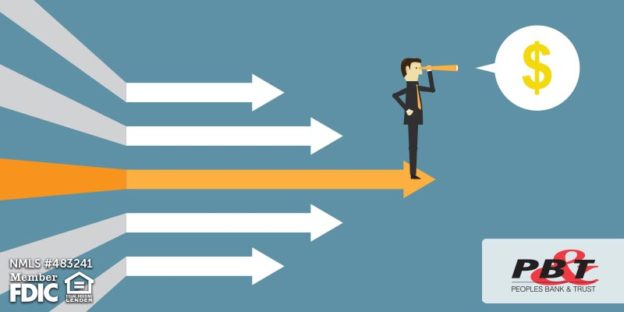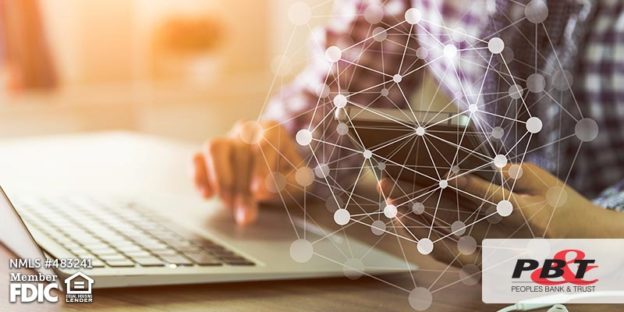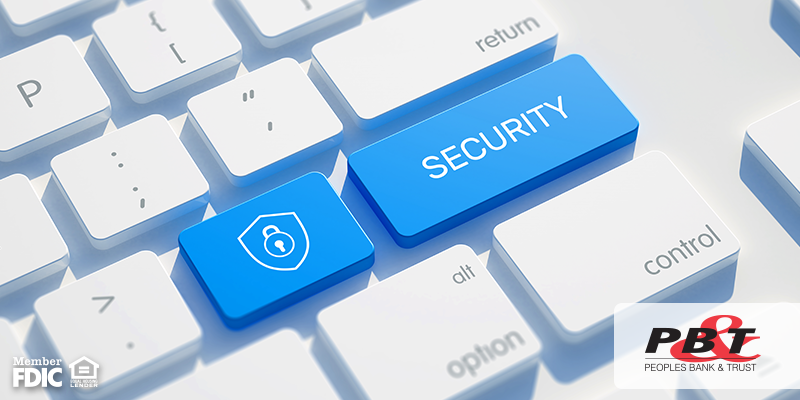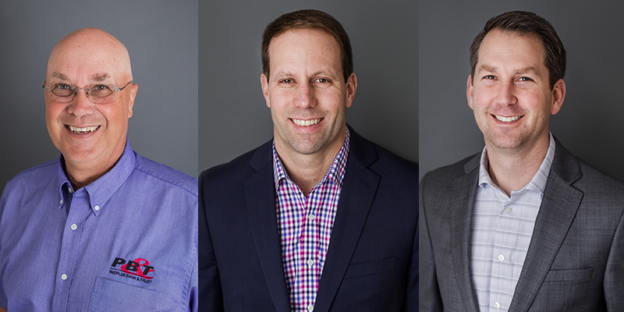Peoples Bank & Trust Co. announced David W. Thompson is retiring as bank President and CEO. He will be succeeded by Justin St. Pierre, who most recently served as President of Lincoln County Bancorp. St. Pierre officially took on his new duties Jan. 1, 2019. However, to ensure a seamless transition, Thompson will remain working for a brief time before retiring from the bank on March 29, 2019. Thompson will retain his positions as Chairman of the Board of Directors for Lincoln County Bancorp and Peoples Bank & Trust Co. Scott Hufty has been selected for the office of President of Lincoln County Bancorp having served as Senior Accountant of Lincoln County Bancorp for the last 14 years.
“Now
is the time for me to step aside and allow the next generation of bankers to
take the helm,” said Thompson. “I have for several years been mentoring and
training a team of wonderful individuals who are more than capable of advancing
community banking to the next levels. They will serve Peoples Bank & Trust
and Lincoln County Bancorp with distinction.”
Thompson,
who joined Peoples Bank & Trust in 1977, has been a driving force in
transforming Peoples Bank & Trust as a community bank with long-term,
sustainable success. Under Thompson’s leadership, Peoples Bank has grown to
$480 million in assets and expanded to a seven-branch bank with an eighth
location opening in Cottleville, MO in Fall of 2019.
In
addition to his leadership roles in the bank, Thompson has also devoted
countless hours to many community and banking organizations including serving as
Past President and Director of Missouri Independent Banker Association, Past Regent
President and Regent of the Paul W. Barrett, Jr. School of Banking, Independent
Community Bankers of America Committee Member, a founding board member of
Lincoln County Missouri Habitat for Humanity, Director of the Lincoln County
Resource Board and Director of the Mercy Health Foundation Board. In addition, Thompson
was presented with the Troy Chamber of Commerce Man of the Year Award in 2018,
in acknowledgment of his contributions to his local community.
In
reflecting on his career, Thompson is most proud of the friendships he has
gained over the last 41 years. “The daily interaction with customers and those
that I work with has developed into lifelong friendships,” he said. “My
employees are my family and I will honestly miss seeing them every day.”
Thompson
plans to keep busy in retirement as he hopes to continue his involvement with
civic organizations as well as become involved in the mission field through his
church. He also looks forward to traveling and playing golf with his wife,
Peggy.
About Justin St. Pierre
As President of Lincoln County Bancorp,
Justin St. Pierre oversaw the operations of five community banks in Missouri:
Peoples Bank & Trust Co., Bank of Louisiana, Exchange Bank of Northeast
Missouri, Peoples Bank of Altenburg and New Frontier Bank. In addition, St.
Pierre managed a holding company staff which provides internal banking services
to all the banks such as IT, audit, loan review, investments and marketing.
St. Pierre worked as a bank examiner for
the Missouri Division of Finance in 1996, before coming to Peoples Bank & Trust
in 1998 as a loan officer. He then transitioned to internal loan review within
the bank holding company, Lincoln County Bancorp, before becoming President of
the organization in 2014.
As President and CEO of Peoples Bank
& Trust Co., St. Pierre will be leading over 130 employees into the future
of community banking. “I am honored to be a part of this next chapter of
Peoples Bank,” said St. Pierre. “We have a talented team of employees that are
dedicated to their positions and it is an exciting time to be working at the
bank.”
“I am confident Justin has the
knowledge, skills and leadership needed to guide Peoples Bank into the future
and continue our success as a community bank,” said David Thompson.
Justin St. Pierre, originally from
Louisiana, MO, is a graduate of the University of Missouri (1994) and the
Graduate School of Banking (2001). He currently sits on the Board of the
Missouri Independent Bankers Association, serves as a member of the Independent
Community Bankers of America Safety and Soundness Committee and is the Board
Treasurer of the First Christian Church of Troy, MO. St. Pierre resides in
Troy, MO, along with his wife Christy and two children: Katie and Griffin.
About Scott Hufty
Scott Hufty managed the financial and
tax reporting obligations of all five banks under the holding company umbrella
in his role as Senior Accountant for Lincoln County Bancorp. When he
transitions into his new position of President, Hufty’s duties will shift into overseeing
bank affairs at a macro level and ensuring the operational needs of each
chartered bank are met.
“I have worked alongside Scott for over
a decade now and I am confident he will continue to guide the banks of Lincoln
County Bancorp to future success,” said St. Pierre.
Scott Hufty is a graduate of Lindenwood
University (2004) and a licensed Certified Public Accountant (2007). He lives
in his hometown of Silex, MO with his wife Kelly and two children: Connor and
Claire.
About Peoples Bank
& Trust Co.
Peoples
Bank & Trust Co. is a full service, independent, community bank serving the
Missouri market areas of Pike, Lincoln and St. Charles Counties through seven
branch locations, with an eighth branch currently under construction and
expected to open in Fall of 2019.
Since 1924, Peoples Bank & Trust continues
to provide full service banking solutions while maintaining the highest level
of customer service. For more information or to see a complete list of products
and services, visit our website at www.pbtc.net and follow Peoples Bank &
Trust Co. on Twitter and Facebook. Member
FDIC.
About Lincoln County Bancorp
Lincoln
County Bancorp is a $800 million bank holding company based out of Troy, MO. It
is the parent company of five independent, community banks in Missouri: Peoples
Bank & Trust Co., Bank of Louisiana, Exchange Bank of Northeast Missouri,
Peoples Bank of Altenburg and New Frontier Bank.











